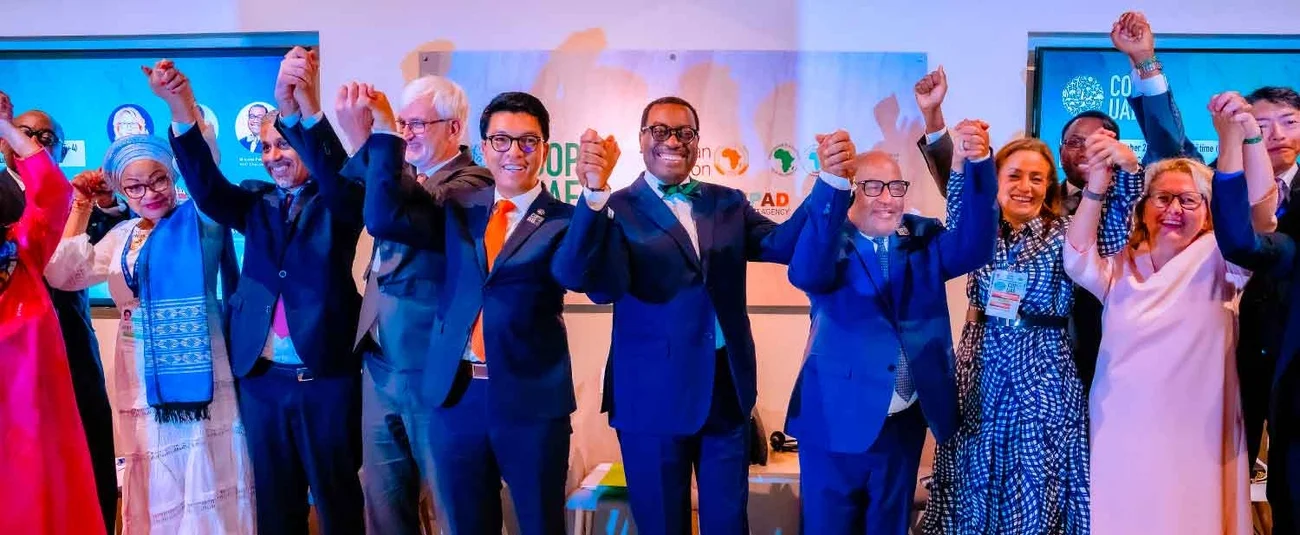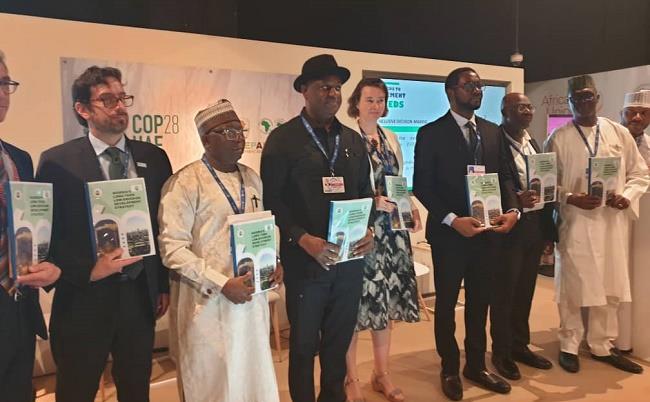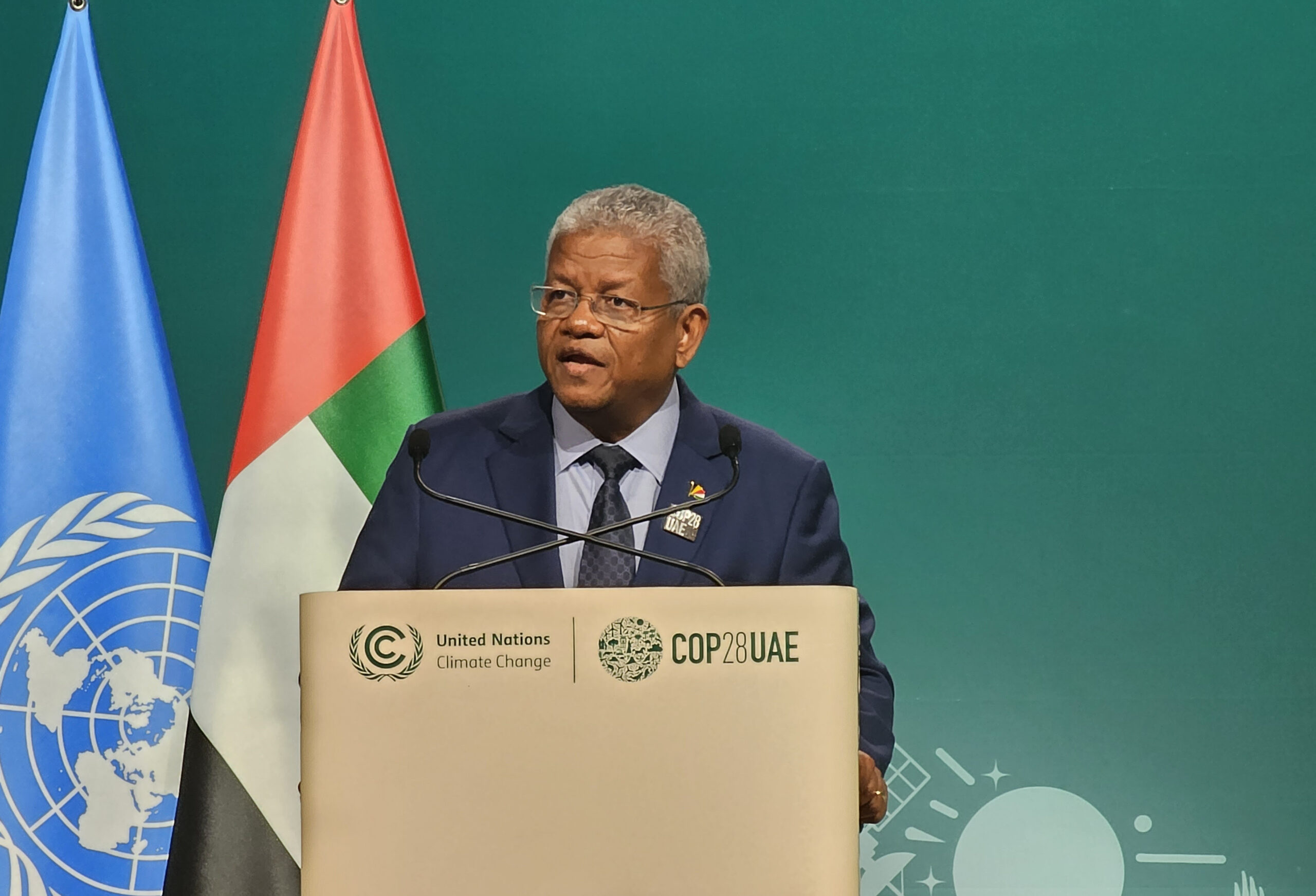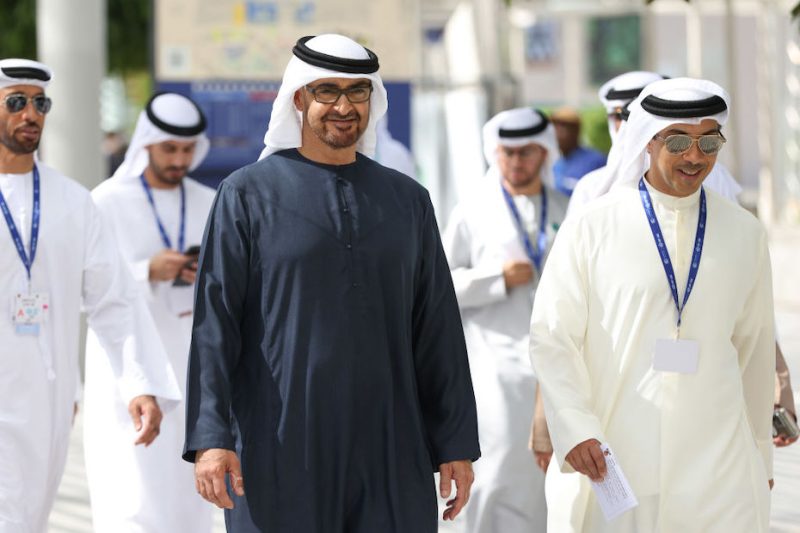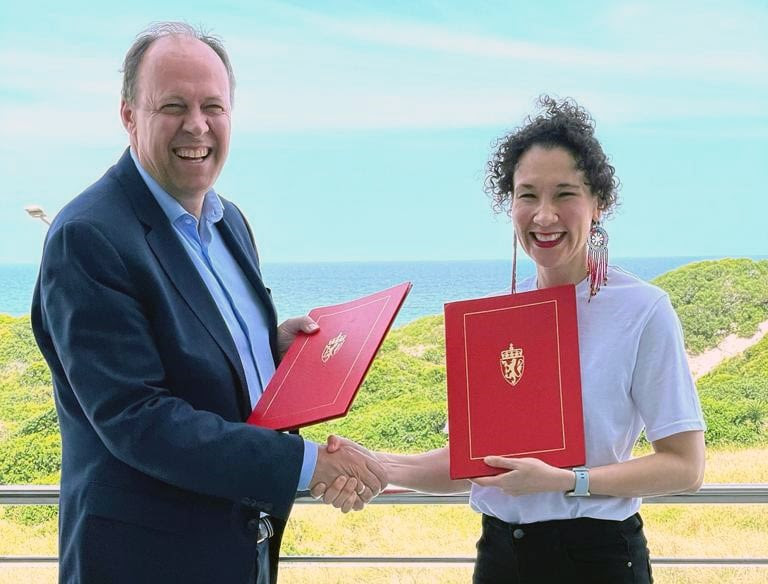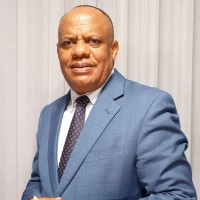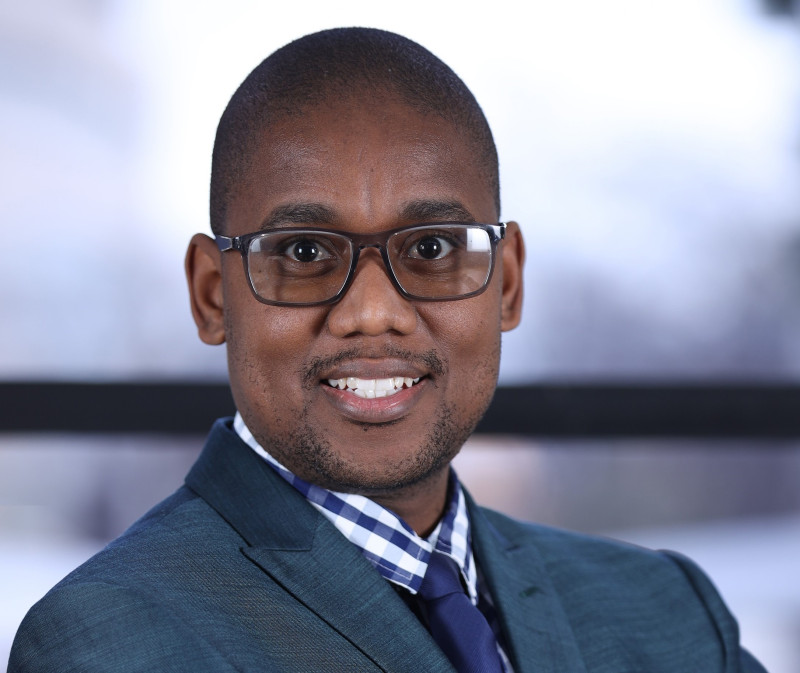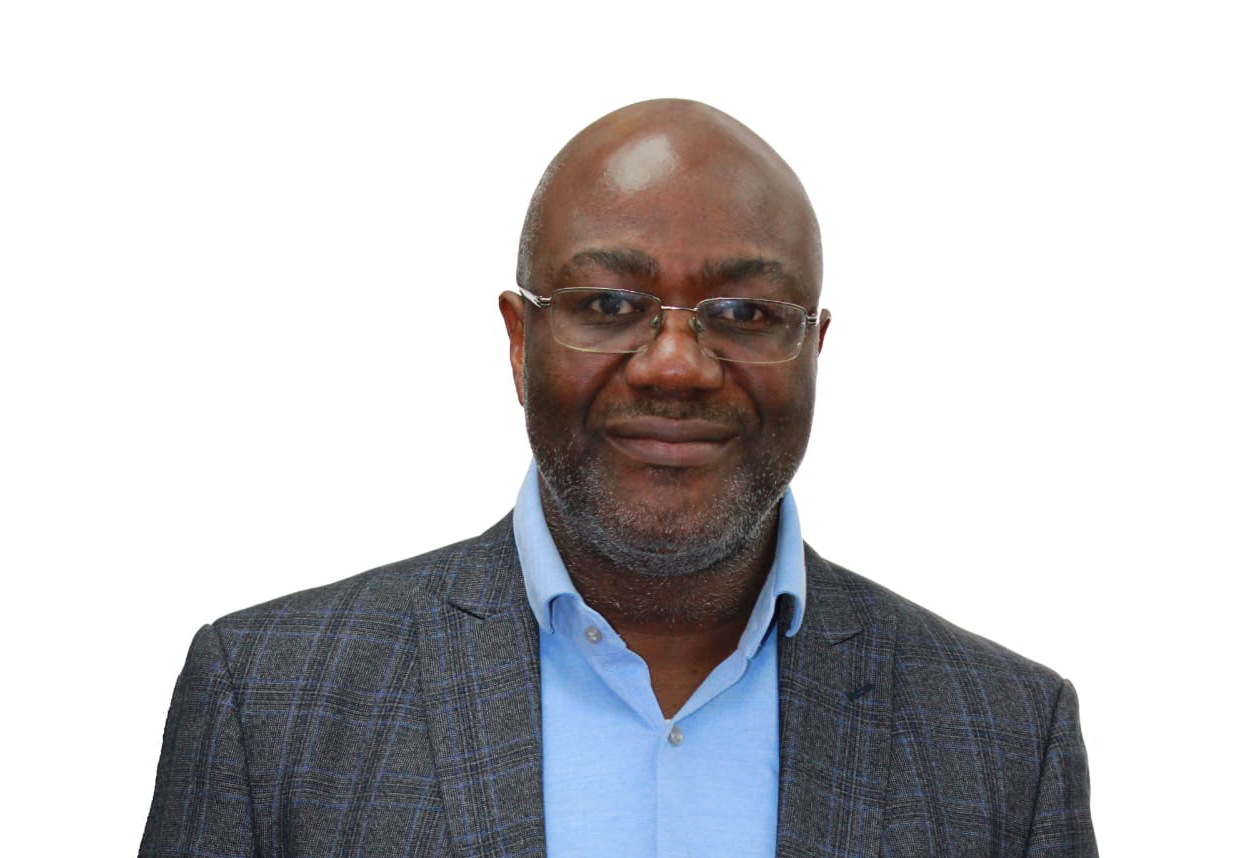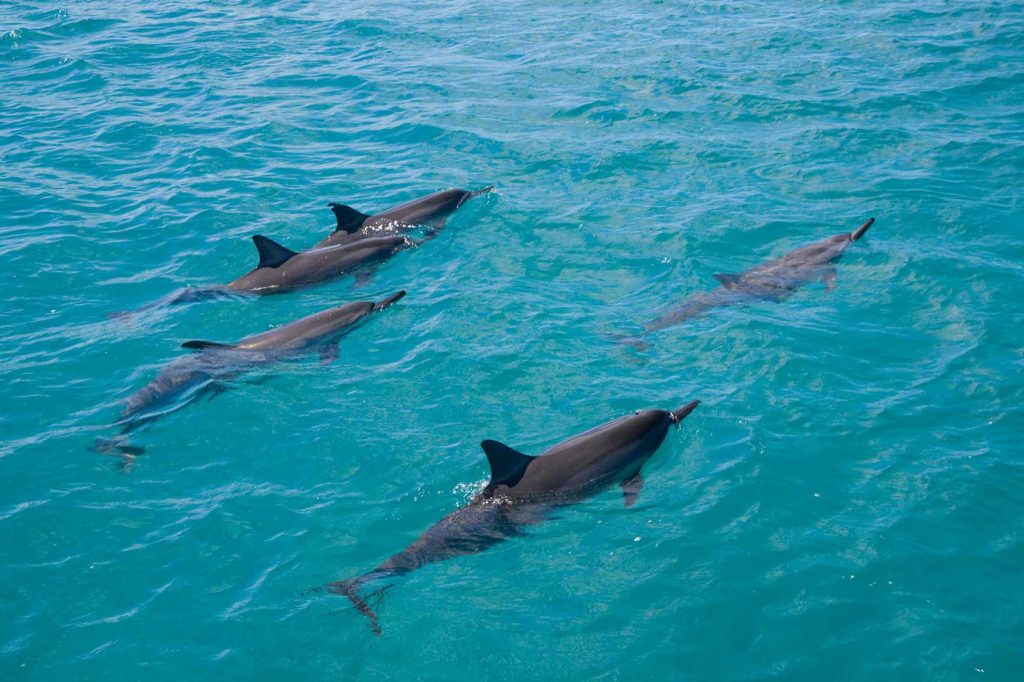|
DUBAI, United Arab Emirates, December 3, 2023/ — In a powerful signal of support during COP28, African and global institutions together with governments of Germany, France and Japan and philanthropies have pledged over $175 million to the Alliance for Green Infrastructure in Africa (AGIA). The landmark initial pledge will help to rapidly scale up financing for transformative climate-aligned infrastructure projects across the continent.
The new pledges will also advance AGIA towards its first close of $500 million of early-stage project preparation and development blended capital. The Alliance is a partnership of the African Union Commission, the African Development Bank, Africa50 and other partners. It works to unlock up to $10 billion private capital for green infrastructure projects and to galvanise global action to accelerate Africa’s just and equitable transition to Net-Zero. Among the signatories of the memorandum of intent were representatives of the African Development Bank, Africa50, France, Germany, Japan, the Arab Bank for Economic Development in Africa (BADEA), Banque Ouest-Africaine de Développement (BOAD), Proparco and the Three Cairns Foundation. The Union of the Comoros President and Chairperson of the African Union Azali Assoumani, Madagascar’s President Andry Rajoelina and African Union Commission Chairperson Moussa Faki Mahamat witnessed the signing ceremony. Germany’s Minister for Economic Cooperation and Development, Mrs Svenja Schulze, said, “Germany is very pleased to join the launch of the Alliance for Green Infrastructure in Africa. We congratulate the African Development Bank on this important Africa-led initiative and want to highlight AGIA’s commitment to the 1.5°C target and its dedication to accelerate Net-Zero emissions in Africa.” She added, “Today marks an important step towards our shared goal of a just and equitable green transition in Africa. Supporting the commitment towards green infrastructure, we are planning to contribute up to €26 million to AGIA starting in 2024.” Tomoyoshi Yahagi, Japan’s Deputy Vice-Minister of Finance, said, “As part of the pledge made by Prime Minister Fumio Kishida yesterday, Japan will provide US$10 million to AGIA to support Africa in undergoing a just and equitable transition to Net-Zero and achieving the 1.5°C pathway. We encourage other donors to contribute to this important initiative.” Emmanuel Moulin, Director General of the French Treasury, said, “By addressing the gap in funding green infrastructure project preparation and development, AGIA will play an instrumental role in Africa’s transition to Net-Zero. Directing concessional resources to such an initiative is in line with France’s vision and solidarity policy for sustainable investment in Africa. This is why we have supported AGIA since inception and we are glad that the Summit on a New Global Financing Pact further raised momentum for the initiative. We are therefore delighted to announce a contribution of €20 million to AGIA and we hope that our contribution will catalyse more private and concessional resources.” African Development Bank Group President Dr Akinwumi Adesina said: “We need private sector financing at scale to tackle climate change and fill Africa’s huge infrastructure gap in a sustainable and climate-resilient manner. By working together and pooling our resources together through AGIA, we are committed to accelerating these efforts. The Bank Group plans to contribute up to $40 million, after approval from its Board of Directors.” Sidi Ould Tah, President of BADEA said, “We have pledged $40 million to support AGIA. We are glad to be part of this vital partnership, aiming at enabling transformational green infrastructure projects in Africa, and accelerating the continent’s transition to Net-Zero in a sustainable manner.” Alain Ebobissé, Africa50 CEO, said: “AGIA is set to become Africa’s largest fund focused on project development, which is a critical component to scale up the delivery of bankable green projects and help the continent achieve its climate goals. This initial fundraising round which includes strong African and international organisations is a great sign of investor confidence in AGIA. We are pleased to be part of this landmark initiative.” Serge Ekué, President of BOAD: “As part of our 2021–2025 Djoliba strategic plan, we have committed that about 25% of our new financing will be aimed at strengthening the resilience of our member countries to climate change. Our interest in AGIA reflects this ambition and will be in line with our strategic approach of mobilising increased climate resources in our region.” Françoise Lombard, CEO of Proparco said his company alongside the French government, “is proud to support AGIA, an initiative aiming to unlock Africa’s potential for green infrastructure by targeting one of its main constraints: the lack of existing bankable projects in this area. The innovative blended structure of the initiative will allow AGIA to mobilise and channel public and private resources towards project preparation and development, the riskier stages of any infrastructure project. In addition, With AGIA, we are one step closer to bridging the infrastructure gap in Africa and one-step further towards Net-Zero.” Mark Gallogly, cofounder of the Three Cairns Foundation, said, “We support AGIA’s mission to catalyse economic development and green infrastructure in Africa. More risk-tolerant, early-stage equity is essential to increase the number of clean energy and climate-related projects across the continent. We commend Africa50 for leading this initiative.” AGIA was launched a year ago at COP27 in Sharm El Sheikh, Egypt, by the African Union Commission, the African Development Bank, and Africa50 and other partners. Distributed by APO Group on behalf of African Development Bank Group (AfDB).
Media contact: Africa50: SOURCE |
Nigeria has achieved what looks like another major milestone in her effort to achieve a net zero carbon economy by 2060 by launching its Long-Term Low Emission Development Strategy on Friday, December 1, 2023, at COP28 in Dubai, UAE.
The event, which was graced by dignitaries and delegates from different countries around the world, was held at the African Pavilion in the Blue Zone and was moderated by Professor Chukwumerije Okereke, Director of the Centre for Climate Change and Development, AEFUNAI, and Dr Eugene Itua, Executive Director of the Natural Eco Capital, the organisation that coordinated and led the development of the LT-LEDS, which was started under the supervision of the Department of Climate Change, Federal Ministry of the Environment, and concluded under the auspices of the National Council on Climate Change (NCCC).
Director General of the NCCC, Dr Salisu Dahiru, who was temporarily represented by Ms Halima- Bwa-Bari, stated that Nigeria was proud to launch the LT-LEDS, which is guaranteed to support sustainable development and climate resilient economy for the nation.
Minister for Aviation and Aerospace, Festus Keyamo (SAN), who represented the Minister for Environment, Balarabe Abbas Lawal, said that the LTS was an important milestone in Nigeria’s effort to implement the country’s net-zero pledge made at COP26 in Glasgow. He said that Nigeria was committed to pursue the transition from a fossil fuel dependent economy to a low carbon future in keeping with the global trend and the Paris Agreement and urged international development partners to support the implementation of the LT-LEDS.
Global Director of the NDC Partnership, Mr. Pablo Vieria, said that Nigeria should be very proud of accomplishment. He stated that by developing the LTS, Nigeria is joining a distinguished group of countries that are exhibiting leadership in developing a clear strategy to decarbonise their economies in response to global climate change. He urged the country to take the next step in adopting the LT-LEDS and pledged the NDC Partnership’s cooperation in this regard.
Head Climate and Nature at the French Development Agency (AFD), Ms Mathide Bord-Laurans, congratulated Nigeria on launching the LT-LEDS. She said that AFD was delighted to have provided support to the Centre for Climate Change and Development, Alex Ekwueme Federal University under the Nigeria Deep Decarbonisation Project (DDP), which enabled the Centre to lead the creation of scenarios and the modelling work that went into the development of the LT-LEDS. She pledged that the Bank would stand firmly by Nigeria and support investments that are geared towards the implementation of the LT-LEDS.
Mr. Richard Baron, Executive Director of the 2050 Pathways Platform, expressed his joy at having assisted Nigeria in the design of the LT-LEDS and the precursor document, the Long-Term Vision (LTV 2050) which was also developed by Natural Eco Capital for Nigeria and submitted to the UNFCCC in 2021, served as the initial first step to the LT-LEDS.
He stated that the LT-LEDS was developed in collaboration with a wide spectrum of stakeholders, making it a truly national document of which Nigeria could be proud.
He expressed his delight that the modelling work for the LT-LEDS was done by Nigerian academics at the CCCD-AEFUNAI, led by Professor Chukwumerije Okereke, and praised the collaboration between the Nigeria Deep Decarbonisation Project, the 2050 Pathways, the National Council on Climate Change, and Natural Eco Capital, with Dr Eugene Itua as the National Coordinator, which resulted in the creation of a high-quality document.
In his closing remarks, the Director General of the NCCC, who had now arrived at the event in person, stated that while the launch of the LT-LEDS was a significant milestone, he would like to see all hands on deck to ensure that the document does not sit on the shelf but that the many projects identified in the documents are translated into practical investment. He stated that the two important next steps are the creation of an LT-LEDS Implementation Plan and the mobilisation of capital from domestic and internal sources to implement the LT-LEDS.
Miss Chioma Amudi, Desk Officer at the NCCC, noted that translating the LT-LEDS into investments would require finance, effective stakeholder engagement, and adequate institutions, among other key factors.
Terseer Ugbor, Deputy Chairman, House Committee on Environment of the Federal House of Representatives, pledged the support of the national parliament in implementing the LT-LEDS.
By Gboyega Olurufemi, Senior Climate Change Analyst and Fellow at the Centre for Climate Change and Development, Alex Ekwueme Federal University, Ndufu-Alike, Nigeria
First published in environewsnigeria.com
